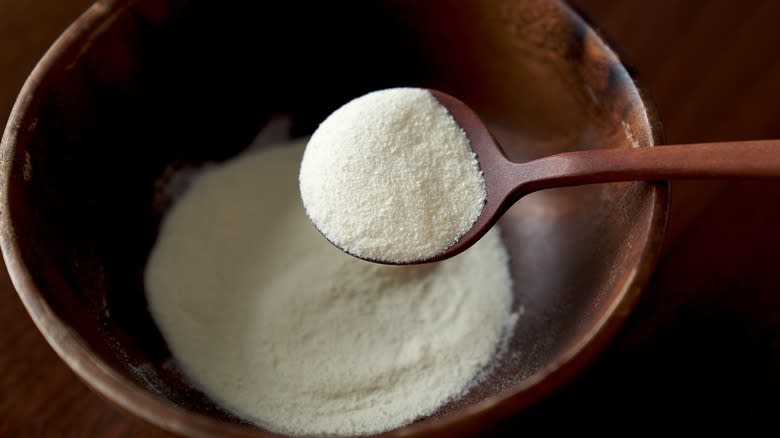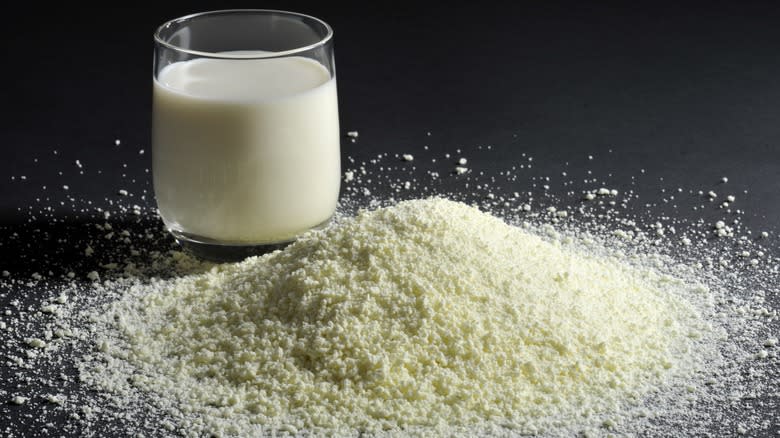A Cold And Dark Place Is Key For Properly Storing Dry Powdered Milk

If you've never had dry powdered milk on your grocery list, consider adding it. It's a great item to keep in your pantry because of its long shelf life: When left unopened and stored properly, it can last anywhere between two to 10 years. You can ensure your milk powder's long shelf life by storing it in a cold, dark place.
Temperature, moisture, and light will affect the quality of dry powdered milk even when left unopened in its packaging. Storing it in a warm area, like near the stove or where sunlight hits, decreases its shelf life considerably. According to a study conducted by Utah State University, powdered milk takes on a different smell and taste when stored at 90 degrees Fahrenheit for six months, whereas storing it at 70 degrees maintains its flavor for four years. The optimal temperature is 50 degrees, which preserves its quality for as long as 52 months. If you don't plan to consume the product within three months, store it in the freezer inside a vacuum-sealed container to protect it from condensation and freezer burn. When storing in a cupboard, transfer powdered milk to a canning jar along with oxygen absorbers to inhibit the growth of microbes that cause spoilage.
Read more: What Happens If You Accidentally Eat Mold?
Keep An Eye On Changes In Dry Powdered Milk's Smell And Color

Even after you've properly stored it, don't miss any signs of your dry powdered milk starting to go bad. Check the product for any changes, such as the powder turning yellow or smelling bad. Discoloration and odor are indications that it has been exposed to moisture, which is conducive for mold and bacteria to flourish.
Take note, too, of the date when you first opened your package of powdered milk and indicate it on the container along with the "best by" date stated by the manufacturer. This helps you keep track of whether the product is still safe for consumption. If you choose to store it in the freezer, it's best not to take the entire container out of the freezer to minimize the effect of temperature change. Simply scoop out the amount of product you need and reseal the container.
The type of milk powder you buy is also a factor in its longevity. Powdered whole milk and powdered buttermilk contain milk fat, which makes them unsuitable for long-term storage. Go with the nonfat variety, instead, if you want something that will last longer in your pantry. There's no need to be concerned about any decrease in the nutritional content of dry powdered milk over time; it retains most of its nutrients for as long as you store it. Its vitamin levels, however, start to deteriorate gradually after 18 months.
Read the original article on Tasting Table.

